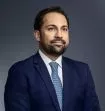- within Environment topic(s)
- within Wealth Management topic(s)
Brazil's Federal Environmental Agency (IBAMA) has launched a public consultation on a draft regulation governing environmental controls for ship-to-ship (STS) operations in Brazilian jurisdictional waters. The draft regulation is set to replace Normative Instruction No. 16/2013. The consultation will remain open until March 17, 2025.
Similar to Normative Instruction No. 16/2013, the draft regulation would require an STS operator to secure an Environmental Authorization for Ship-to-Ship Operations (AASTS) and an Environmental Authorization for the Transportation of Hazardous Products (ATPP) from IBAMA. The draft regulation would also require an AASTS to be obtained when STS operations occur within port areas covered by environmental licensing, but, in this case, the AASTS is to be issued by the licensing agency (i.e., not necessarily by IBAMA).
However, the draft regulation introduces new requirements, including mandatory registration in the Federal Technical Registry of Environmental Defense Activities and Instruments (CTF/AIDA), on top of the existing requirement to be registered in the Federal Technical Registry of Potentially Polluting Activities and Users of Environmental Resources (CTF/APP).
Additionally, the draft regulation imposes new obligations on STS operators, including:
- Providing two access points to the National Center for Environmental and Climate Emergencies (CENEAC) for water traffic monitoring;
- Maintaining an oil spill response vessel on standby throughout the STS operation; and
- Prohibiting STS operations in ecologically sensitive areas, such as canyons, seamounts, reef complexes, and oceanic islands.
Further, the draft regulation requires:
- Quarterly reports on STS operations;
- Real-time vessel tracking data submission to IBAMA; and
- The implementation of a Risk Management Plan and an Individual Emergency Plan.
Existing environmental authorizations will remain valid until their respective expiration dates. However, stakeholders must comply with the new requirements within 60 days of the regulation's publication or risk suspension of their environmental authorization.
The Environmental, Climate Change and ESG, and Maritime Practices of Tauil & Chequer Advogados associated with Mayer Brown are available for further clarification.
Visit us at mayerbrown.com
Mayer Brown is a global services provider comprising associated legal practices that are separate entities, including Mayer Brown LLP (Illinois, USA), Mayer Brown International LLP (England & Wales), Mayer Brown (a Hong Kong partnership) and Tauil & Chequer Advogados (a Brazilian law partnership) and non-legal service providers, which provide consultancy services (collectively, the "Mayer Brown Practices"). The Mayer Brown Practices are established in various jurisdictions and may be a legal person or a partnership. PK Wong & Nair LLC ("PKWN") is the constituent Singapore law practice of our licensed joint law venture in Singapore, Mayer Brown PK Wong & Nair Pte. Ltd. Details of the individual Mayer Brown Practices and PKWN can be found in the Legal Notices section of our website. "Mayer Brown" and the Mayer Brown logo are the trademarks of Mayer Brown.
© Copyright 2025. The Mayer Brown Practices. All rights reserved.
This Mayer Brown article provides information and comments on legal issues and developments of interest. The foregoing is not a comprehensive treatment of the subject matter covered and is not intended to provide legal advice. Readers should seek specific legal advice before taking any action with respect to the matters discussed herein.




